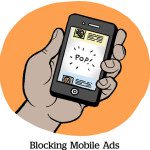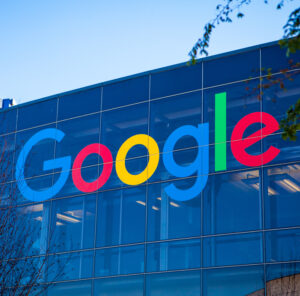Here’s today’s AdExchanger.com news round-up… Want it by email? Sign up here.
ARPU Kidding Me?
Netflix released details about its ad-supported tier last week. One interesting tidbit dropped by Chief Operating Officer Greg Peters is that Netflix expects the $6.99-per-month, ad-supported plan to be “neutral to positive” in terms of average revenue per user, compared to the $9.99 ad-free subscription.
That’s a startling revelation because A) why did Netflix wait so long to launch ads? And B) Does Netflix really expect an ad-supported subscriber to generate more revenue than ad-free viewers?!
Eric Seufert at Mobile Dev Memo provides a handy mix of back-of-the-napkin math and informed estimates to judge that it is actually a conceivable – albeit ambitious – ARPU benchmark that AVOD will eventually outearn ad-free.
Netflix has reportedly set a rather rich $65 CPM, but advertisers aren’t likely to balk, at least at the beginning, because there’s novelty value in being an early Netflix advertiser. Then again, the Netflix ad tier has 5% to 10% less content, due to licensing agreements, which could lower engagement rates for those subscribers.
But consider this: If the advertising ARPU does exceed the ad-free tier, and it becomes advantageous for Netflix to shunt subscribers to ads, it could be a fundamental turning point for the company.
Fact, Fiction And Facebook
Meta is ditching products.
The tech giant will get rid of Instant Articles starting in April 2023, a source tells Axios.
Facebook Instant Articles launched in 2015 as a way to speed-load stories. (Read between the lines, though, and Facebook really just wanted to store the content itself, similar to how Google AMP promised speed if publishers pushed everything to Google.)
But the end of Instant Articles shouldn’t be surprising. Facebook has been deemphasizing news content and publishers in favor of the creator economy.
For instance, Meta shut down its Bulletin newsletter subscription service earlier this month and, earlier this year, it ended licensing deals with publishers to license content for the Facebook News tab.
Meta, like other big tech companies, is undergoing major cuts and reorganizations. Just look at Snap, which got rid of its hardware teams for Spectacles and the Pixy drone – but that was a tough call. Facebook, on the other hand, seems eager to sidle away from the news business.
A question remains, however: What happens in a year or two if Meta earnestly starts pitching publishers on another pivot to news? Considering Meta’s recent moves and its previous pullback from its ill-fated pivot to video, any publisher with a self-preservation instinct would do well to remain extremely skeptical.
Data Dirty Rooms
A group of industry players has launched the Clean Room Primer Group, an organization meant to demystify and evangelize clean room tech.
Habu is the largest sponsor of the new industry org, which is also being backed by LiveRamp, InfoSum, Claravine, Kite Hill Public Relations, Marcato Solutions and the B2B Marketing Co.
There’s a clear and present need for better understanding of data clean room tech across the industry, and clean room vendors banding together to launch an education group makes sense. It’s not unlike how the customer data platform category spawned the CDP Institute.
Data clean rooms must define themselves before people who don’t know or care do it for them. To that end, the IAB Tech Lab plans to release the first draft of a data clean room standards document by December.
“There is so much to gain if we get this right in terms of performance, privacy and sustainability,” said InfoSum CEO Brian Lesser in the release. The primer, he said, “is an integral first step in establishing consensus and eliminating confusion for our partners across the ecosystem.”
But Wait, There’s More!
Kroger confirms it will buy Albertsons in a $24.6 billion deal … if it can weather DOJ antitrust approval. [WSJ]
Google faces EU antitrust charges over its ad tech business. [Reuters]
The FTC extends its deadline for public comments on its proposed rulemaking for commercial surveillance. [release]
How creators can make more money off of YouTube Shorts. [Insider]
You’re Hired!
Bidstack brings on Camila Franklin as COO and promotes Lisa Hau to chief strategy officer. [release]














